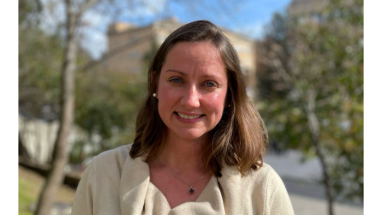Social work is simultaneously an intervention profession and an academic discipline that seeks social development and change, social cohesion, empowerment, and the promotion of individuals, with the principles of social justice, human rights, collective responsibility, and respect for diversity at its core. Grounded in its own theoretical base and theories from other social and human sciences, social work connects people with social structures to address challenges and improve social well-being (cf. IFSW & IASSW, 2014). The Global Declaration of Ethical Principles for Social Work, in turn, reinforces social workers' commitment to the fundamental values and principles of their profession, including treating the human person as an integral being (cf. IFSW & IASSW, 2018).
The distinctive features of social work seem to suggest that Integral Human Development – a concept coined in 1967 by Pope Paul VI in the Encyclical Letter Populorum Progressio to indicate a vision of development centered on the human being, capable of "promoting all men and the whole man" (14), and whose focus Pope Francis renewed in 2015 with the publication of the Encyclical Letter Laudato si' – finds reflection in this social profession. This correlation acquires particular significance when looking at the recipients of social workers' intervention: people, groups, and communities in situations of poverty and social exclusion, relegated to the "peripheries of humanity." In this sense, social work can contribute to the understanding of critical societal issues and to advising social policies that frame social workers' actions in an organizational context.
In the face of profound transformations occurring in the contemporary world and, by extension, in the social fabric, social work has seen its professional field being reconfigured (cf. Amaro, 2015; McGregor, 2019), presenting an opportunity to rethink the education and practice of social workers. This is the aim of this postdoctoral project, initiated in February 2022, whose journey is now presented: on the one hand, to produce knowledge about reality and; on the other, to formulate proposals capable of leading to greater awareness among the various stakeholders in social intervention processes, and to empower social workers for a professional practice more aligned with the integral development of the human person in contexts of poverty and social exclusion. By operating in this way, it aimed to indirectly reach a broad set of beneficiaries: the recipients of social workers' intervention.
In concrete terms, the Autonomous Region of Madeira was established as an observatory, a territory where different incursions were carried out using an action-research methodology, involving social workers, institutional leaders, and political decision-makers in matters of social inclusion and citizenship.
Amaro, Maria Inês (2015), Urgências e Emergências do Serviço Social: Fundamentos da profissão na contemporaneidade (2.ª ed.), Lisboa: Universidade Católica Editora.
IFSW & IASSW (2014), Global Definition of Social Work.
IFSW & IASSW (2018), Global Social Work Statement of Ethical Principles.
McGregor, Caroline (2019), “A paradigm framework for social work theory for early 21st century practice”. British Journal of Social Work, 49, 2112-2129:
Papa Francisco (2015), Laudato si´.
Papa Paulo VI (1967), Populorum Progressio.
Bio
Fellow in the Post-Doctoral Program in Integral Human Development at the Católica Doctoral School. She holds a PhD in Social Work since 2022 from the Faculty of Human Sciences at Universidade Católica Portuguesa (UCP), with a thesis entitled “Marie-Thérèse Cécile Lévêque and the Institute of Social Work (1935-1946): History and Memory.” At that Faculty, she also obtained her Master's degree (2009) and Bachelor's degree (2005) in Social Work.
Researcher at the Center for Religious History Studies – UCP since 2008, responsible for the project of organizing and describing the documentary collection of social worker M.ª Leonor Corrêa Botelho (1915-96), and member of the editorial team of the “Encyclopedia of Religious History in Portugal” (online). She was part of the Center for Social Work and Sociology Studies – UCP, between 2006 and 2016, where she participated in the study on homeless immigrants in Portugal and in the survey of support needs of the elderly population in Lisbon. Author of The Historical Discourse on Social Work in Portugal (UCE, 2009), and co-author of Homeless Immigrants in Portugal (ACIDI, 2013). Her research area focuses particularly on the history and construction of the social work profession in Portugal.
Invited assistant professor at the Faculty of Human Sciences at UCP, where she teaches in the Master's in Social Work. Deputy coordinator and lecturer in the Post-Graduation “Current Perspectives, Support and Integration in Social Work” (2023/24), ongoing at the University of Madeira (UMa), in partnership with UCP. She was a lecturer in the Bachelor's in Social Work at UCP (2006-16), and also at UMa (academic year 2007/08). She was a member of the Advisory Council of the Yearbook of the Center for Atlantic History Studies, in the Autonomous Region of Madeira (2009-15), and served as director of sustainability and social responsibility at Grupo Sousa, Funchal (2016-19).
Member of the Groupe de Recherche sur l'Histoire du Service Social (GREHSS), based in Paris, and the European Social Work Research Association (ESWRA), where she is part of the Social Work, History and Research group. Member of the Association of Social Work Professionals (APSS) and the Order of Social Workers (OAS).



